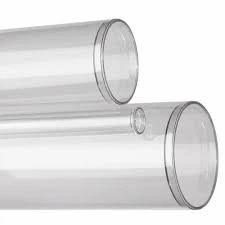វិច្ឆិកា . 29, 2024 15:49 Back to list
Benefits of HDPE Pipes in Drip Irrigation Systems for Efficient Water Management
HDPE Pipe for Drip Irrigation An Overview
Drip irrigation is a modern agricultural technique that has gained immense popularity due to its ability to deliver water directly to the plant's root zone, significantly enhancing water use efficiency. One of the critical components of a drip irrigation system is the choice of piping material. High-Density Polyethylene (HDPE) piping has emerged as a preferred choice for many agriculturalists and landscape professionals. This article explores the advantages of HDPE pipes in drip irrigation, their applications, and factors to consider when selecting HDPE for irrigation systems.
What is HDPE?
High-Density Polyethylene (HDPE) is a thermoplastic polymer made from petroleum. Known for its strength-to-density ratio, HDPE is a versatile material that can withstand various environmental conditions. It is lightweight, durable, and resistant to impact, chemicals, and UV radiation, making it an ideal choice for agricultural applications.
Advantages of HDPE Pipes in Drip Irrigation
1. Durability and Longevity HDPE pipes are known for their exceptional durability. They have a lifespan of 50 years or more under normal operating conditions. This longevity reduces the need for frequent replacements, ultimately lowering maintenance costs for farmers.
2. Flexibility Unlike rigid piping materials, HDPE pipes are flexible, allowing them to be easily installed in various terrains. Their flexibility also means they can withstand ground movements, making them less prone to damage from soil settling or frost heave.
3. Resistance to Corrosion and Chemicals HDPE pipes do not corrode or rust over time, unlike metal pipes that can degrade due to chemical reactions with water and soil. This resistance is particularly beneficial in agricultural settings where they may be exposed to fertilizers, pesticides, and other chemicals.
4. Lightweight The lightweight nature of HDPE makes it easy to transport, handle, and install. This characteristic reduces labor costs related to installation and allows for quicker setups in the field.
5. Efficiency in Water Usage Drip irrigation systems aim to minimize water waste. The smooth inner surface of HDPE pipes reduces friction, leading to lower energy costs and more efficient water distribution. This efficiency is crucial in water-scarce regions where every drop counts.
hdpe pipe for drip irrigation

6. Cost-Effectiveness While the initial investment in HDPE pipe may be higher compared to other materials, the long-term benefits, including reduced maintenance and longer lifespan, make it a cost-effective choice in the long run.
Applications of HDPE Pipes in Drip Irrigation
HDPE pipes are widely used in various applications within the agricultural sector, including
- Row Crops For crops such as lettuce, carrots, and tomatoes, HDPE pipes provide a reliable irrigation method that ensures uniform water distribution. - Greenhouses The lightweight and flexible nature of HDPE make it suitable for greenhouse irrigation, where precise water delivery is essential for plant health. - Orchards HDPE pipes are used to efficiently irrigate fruit trees, maximizing water availability during critical growth periods without over-saturating the soil. - Sports Fields and Landscapes Beyond agriculture, HDPE pipes are also employed in landscaping and maintaining sports fields for controlled irrigation.
Considerations When Selecting HDPE Pipes
When choosing HDPE pipes for drip irrigation, consider the following factors
1. Pipe Specifications Ensure that the pipe meets the required pressure rating and diameter for specific application needs. 2. Fittings and Connections Select compatible fittings to maintain the integrity of the irrigation system and prevent leaks. 3. Soil Conditions Understand the soil type and conditions where the piping will be installed, as this can influence the choice of pipe specifications and installation methods. 4. Filtration and Maintenance Regular maintenance, including filter checks and cleaning, is crucial to preventing clogging and ensuring the longevity of the irrigation system.
Conclusion
HDPE pipes present a myriad of advantages for drip irrigation systems, including durability, flexibility, and efficient water usage. As agriculture continues to evolve towards more sustainable methods, the utilization of HDPE pipes is likely to expand, enhancing productivity and ensuring ecological conservation. Farmers and agricultural professionals who invest in HDPE piping systems stand to benefit from the long-term reliability and efficiency these pipes offer, ensuring healthy crops and responsible water management.
-
PVC Transparent Sheet Roll - Durable & Flexible PVC Plastic Sheet Roll for Industrial & Home Use
NewsJun.24,2025
-
High-Quality PVC PPR Pipes and Fittings Durable ERA PPR Solutions
NewsJun.10,2025
-
High-Quality Large HDPE Sheets & Large Diameter PVC Pipe Durable Large PVC Pipe Supplier
NewsJun.10,2025
-
High Density Polyethylene Cutting Board - Durable & Food Safe
NewsJun.09,2025
-
3 Inch PVC Pipe for Durable Irrigation Affordable & Reliable
NewsJun.09,2025
-
Premium PPR Plastic Water Pipe Fittings - Durable & Leak-Free
NewsJun.09,2025

